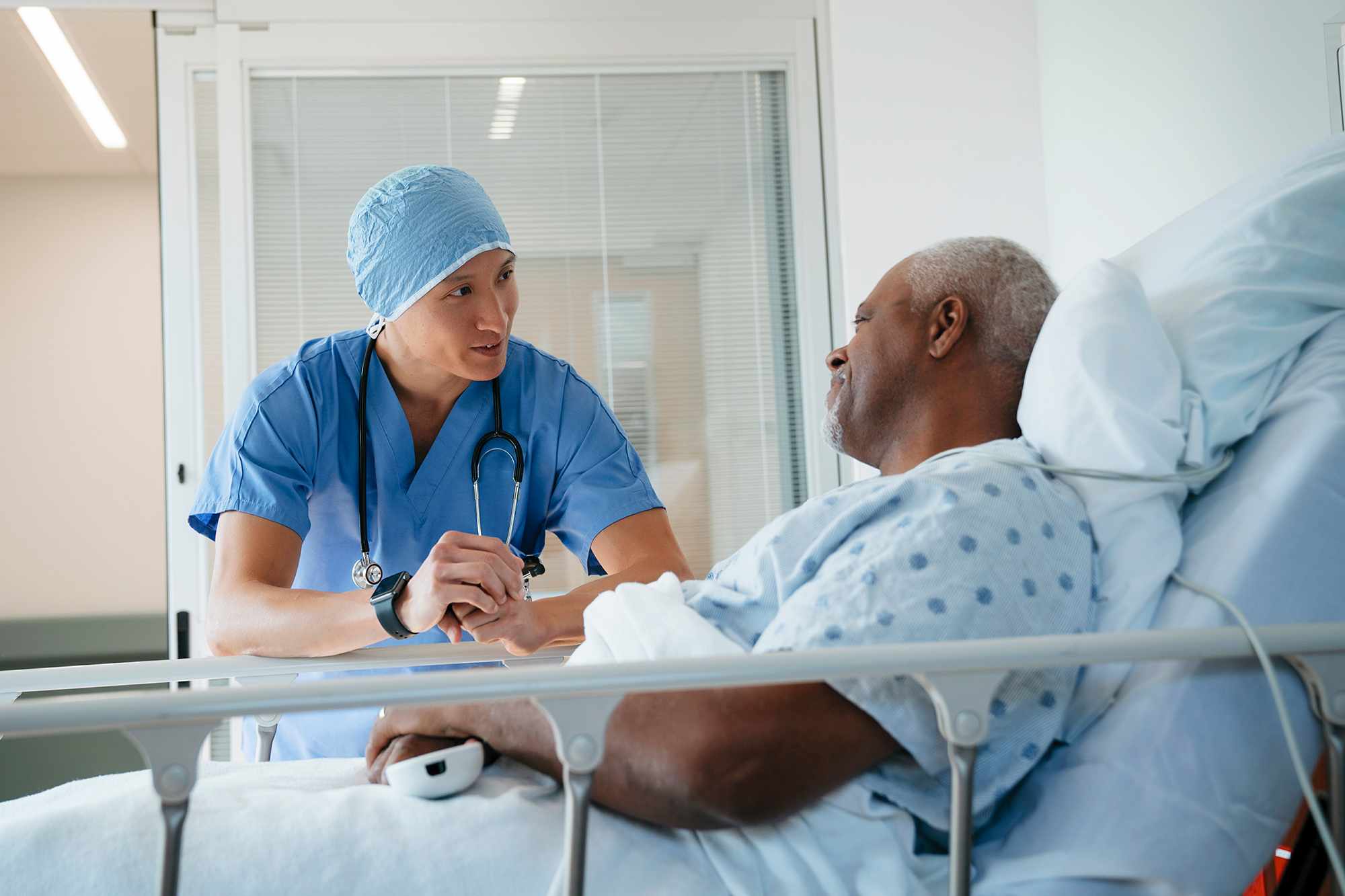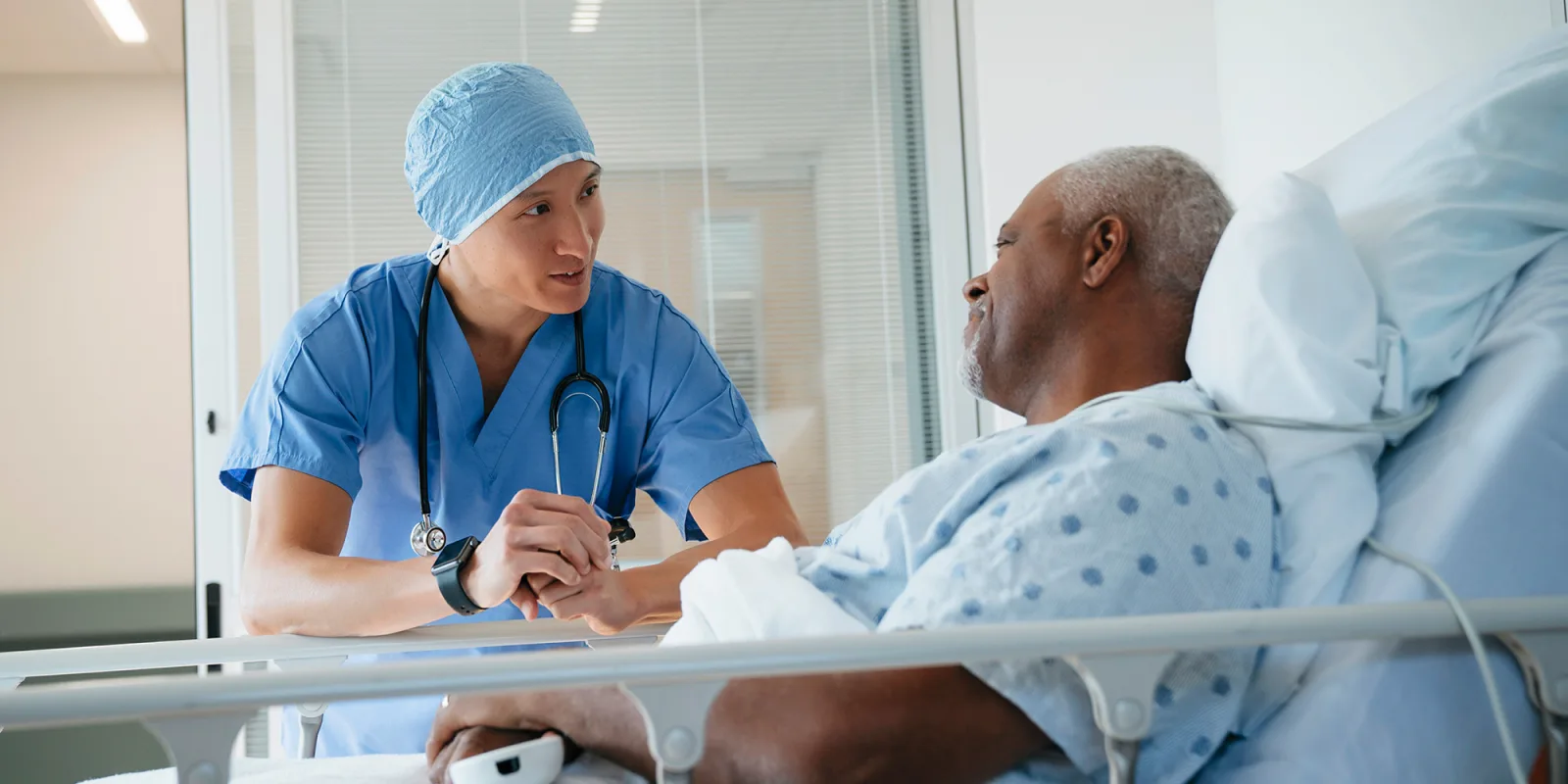
A typical response I receive from patients when asked the question of my chosen specialty — general surgery — is, "You're too nice to be a surgeon." Whenever I hear this from a patient, it reminds me of the surgeons I trained under who myself and others consider to be "nice". The subtle truth conveyed in this response by patients is not lost on me; becoming a surgeon takes a deep level of grit, resilience, commitment, and sacrifice. These qualities are not commonly akin to kindness, yet many of the surgeons I have worked with balance them impeccably. From my experience, becoming a great surgeon is a process that takes emotional intelligence, leadership, and immense medical and physical expertise. These characteristics should be fostered in future surgeons.
Emotional intelligence is not the first thing that comes to mind when one thinks of a surgeon. The first time I understood what it meant to be a surgeon, I wasn't in the OR, the ICU, or even in a patient room. I was in a family conference room with a surgeon who spoke to the family of a patient in an unstable condition. I watched her explain the poor prognosis. It was the delicate articulation of the surgeon's words, tone of voice, and cadence that communicated the dire situation. Her vulnerability wasn't in the form of sharing intimate life details; it was her willingness to sit with the family, address each emotion they felt, and bring out others they hadn't named yet. She was present in the silence, the tears, the confusion, and the grief. To sit in these thick emotions — without letting her own emotions interfere — took emotional vulnerability and self-awareness. Her interpersonal ability was matched only by her skill in the operating suite.
Surgery lives at the crosshairs of toughness and vulnerability. One moment surgeons are in the OR leading the operative team; the next, they are counseling a family on their loved one's grim prognosis. In these situations, trust is paramount from the surgical team and patients. Building trust begins with vulnerability amongst team members. Spaces for medical professionals to let down barriers, share vulnerabilities, and flex their emotional muscles are exceedingly rare, especially during medical school. This space is key to creating a thriving culture and a healthy health care workforce. Medical school is a difficult time of formation, personally and professionally, and creates competition and stress. The necessity for these skills as a surgeon is heightened. Opportunities to cultivate emotional intelligence must be developed during the years of medical training to promote the growth of compassionate, empathetic physicians.
During my trauma and acute care surgery clerkship, I encountered this necessity when I saw an acutely ill patient in the ED. She was an elderly patient with multiple chronic illnesses, prior surgeries, and was seasoned in the inpatient setting. I sat down to ask her about her history, and I engaged with her emotions regarding being back in the hospital after being so recently discharged. As I spoke with her, she showed frustration, confusion, and exhaustion. Through my recognition of — and engagement with — her emotions, I gained her trust. It was then my accurate history, physical examination, and communication with the team regarding her complicated past that impacted the outcome of her illness. I wasn't performing surgery, but the patient trusted our team in part due to my ability to listen to the patient's emotions and complicated medical circumstances and ensure the team was up to date.
Surgeons are regularly pressed for time and can sacrifice efficiency for connection with their patients. Though, the time constraints surgeons face provide an opportunity for creativity in building rapport and require increased emotional intelligence. I have experienced surgeons masterfully gain a patient’s trust and engagement in a brief encounter through being present, interested, and inquisitive; having emotional IQ means understanding the patient in front of them is probably experiencing many frightening emotions. It is the skill of recognizing emotions in another person and reflecting these emotions to them that build the trust central to the patient-physician relationship.
Juxtaposed to the emotional quotient needed for building trust with patients and colleagues is the need for focus, emotional rigidity, and mental fortitude during surgery. Surgeons have a tremendous responsibility to keep the patient safe in the operative suite. Manual skill, medical and anatomical knowledge, teamwork, and communication are all required for this to happen. If one aspect is missing, the patient and team are in jeopardy of being injured, and the responsibility falls on the surgeon. Due to this pressure, surgeons must master a diverse set of skills.
I believe one of the most crucial lessons for surgeons and medical students to learn is emotional intelligence. I hope that when I am attending, students will want to become surgeons because it requires mastery of physical, intellectual, and emotional skills. I wish to follow in the footsteps of the surgeons I have trained under and bring humanity to surgery. Becoming a general surgeon who is known for his team-first leadership, determination, and courage is essential; continuing to be the person who is "too nice to be a surgeon" is just as important.
Matthew is a third-year medical student at Western University of Health Sciences College of Osteopathic Medicine of the Pacific Northwest. Matthew serves as his Class Representative for WesternU's Student Government Association and has a passion for physician leadership, educational innovation, and encouraging emotional intelligence in the medical community.






